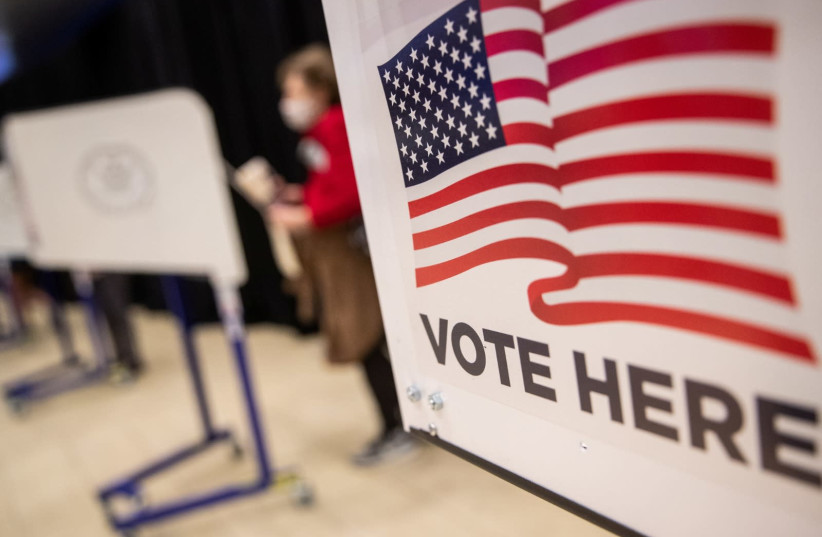Americans hold more positive than negative views on Jews, mainline Protestants and Catholics, according to a new study conducted amid a record high number of antisemitic acts across the United States.
In contrast, the Pew survey published on Wednesday found that more Americans express unfavorable opinions toward atheists, Muslims and Mormons (members of the Church of Jesus Christ of Latter-day Saints).
Of the 10,588 US adults polled, most felt neutral or responded with “don’t know enough to say” when asked about each group, including 58% of respondents who didn’t know or felt neutral about Jewish people. 34 percent of non-Jewish US adults held positive opinions about Jews, compared to 7% who held unfavorable views of Jews, who were the only group that received a net positive rating across all groups surveyed.
The study also looked at partisan lines and found that both Republicans (38%) and Democrats (33%) view Jews positively, while the same shares had critical views (6%).

Those who vocalize a negative opinion of Jews is similar regardless if they interact with Jews (6%) or not (7%).
Overall, more respondents held more favorable than unfavorable views about mainline Protestants (30%), Catholics (34%), and Evangelical Christians (28%). Mainline Protestants were viewed negatively by 10% of respondents, Catholics by 18%, and Evangelicals by 27%.
Meanwhile, most respondents felt neutral toward or didn’t know enough about Protestants (59%), Catholics (47%) and Evangelicals (44%). Among those viewed more unfavorably than favorably were atheists (24%), Muslims (22%), and Mormons (25%).
Anti-Jewish incidents surge
The same week the Pew findings were released, a new FBI report found that anti-Jewish incidents increased nearly 20% in 2021 relative to 2020, but decreased relative to prior years.
The updated FBI statistics released Monday counted 817 anti-Jewish criminal offenses reported by local law enforcement agencies in 2021, up from 683 in 2020 — a year when people largely stayed off the streets for a substantial period due to the COVID-19 pandemic. The 2021 numbers, however, represent a 15% decline from 2019, when the FBI reported 963 hate crimes, as well as a slight decline from 2018 when FBI statistics show 847 hate crimes.
Overall, the report showed a total of more than 10,800 total hate crimes — the highest number in decades. As in previous years, anti-Jewish incidents comprised the majority of the 1,590 hate crimes based on religion.
In February, 41% of American Jews said their status in the US is less secure than it was a year ago, according to the American Jewish Committee’s State of Antisemitism in America Report for 2022. In the AJC’s 2021 report, 31% gave that answer.
JTA contributed to this report.